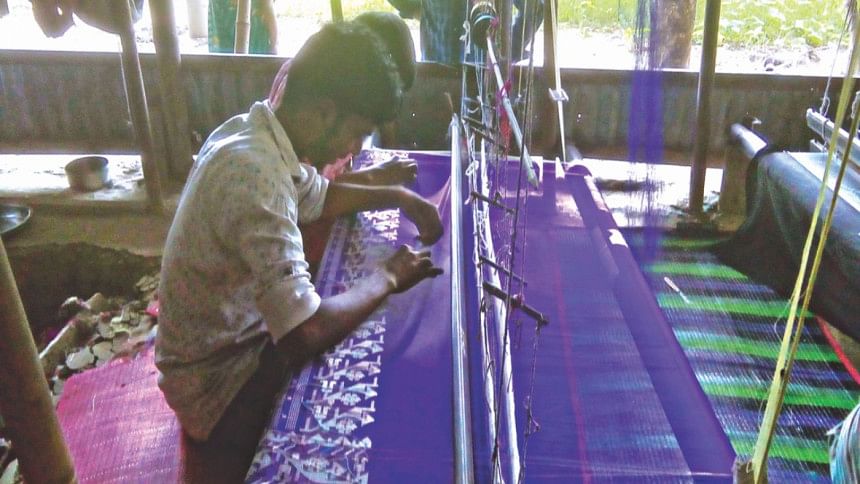Quality Jamdani now at remote Faridpur village

Nowadays, one can see the traditional Jamdani saree being produced in Boalmari upazila of the district, thanks to the initiative of 21-year-old Abu Naser.
Naser, a resident of Sotashi village in the upazila, set up a small Jamdani saree factory at his home with only two weaving machines and three workers of different ages.
The journey began around 10 years back when Naser, then an 11-year-old boy, started working at a Jamdani factory in Tarabo area in Narayanganj's Rupganj upazila.
There he worked at a factory, owned by one Mokbul Hossain, for nearly four years before returning to his own village.
After returning to Boalmari from Narayanganj, he started to weave Jamdani at the factory of one Touhid Biswas.
Naser worked under Touhid for about five years till the factory was closed over two years ago, and went to Narayanganj in search of job.
Finally, about one and a half years ago, Naser returned to his village and started a small Jamdani factory of his own there with only two weaving machines.
During a recent visit to Sotashi village this correspondent saw Naser and another weaver with two helpers weaving Jamdani at his handloom factory.
Nasar said one would find no difference between Jamdani of Faridpur and Narayanganj or Narsingdi.
One weaver and a helper can produce one Jamdani saree in a month, he said, adding that each saree is sold for Tk 13,000 to Tk. 24,000 to the wholesalers in Narayanganj with a production cost of Tk 8,000 to Tk 14,000.
“I purchase raw materials like threads and dye from Narayanganj,” Naser said, adding that he wants to expand his factory but cannot do so due to financial problems.
Anwar Hossan, a trader at Nowapara Bazar in Rupganj upazila, said the quality of Naser's Jamdani is very good as he weaves the sarees with love and affection.

 For all latest news, follow The Daily Star's Google News channel.
For all latest news, follow The Daily Star's Google News channel. 



Comments